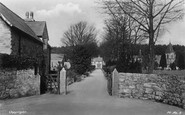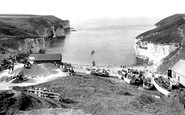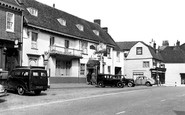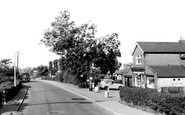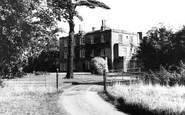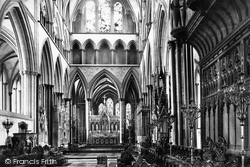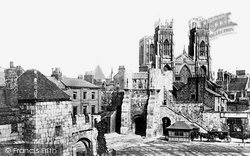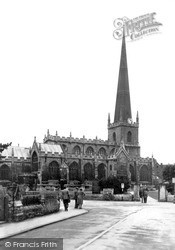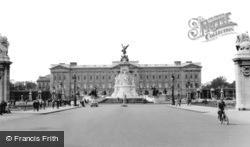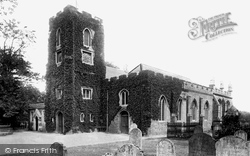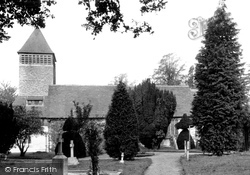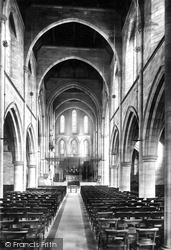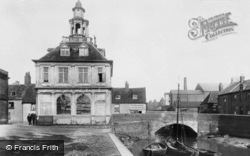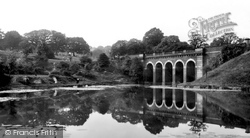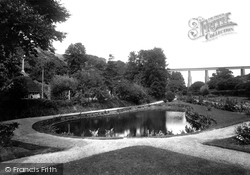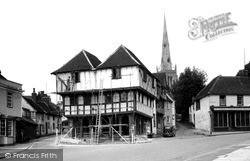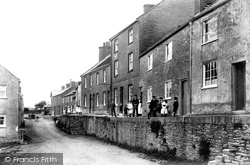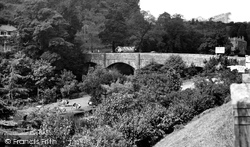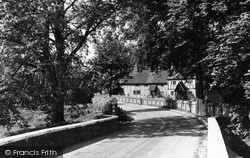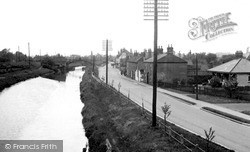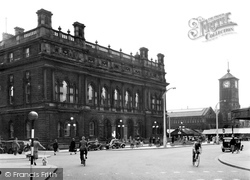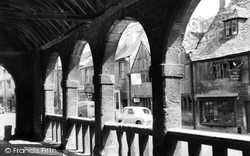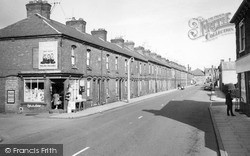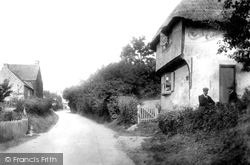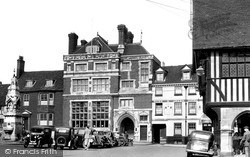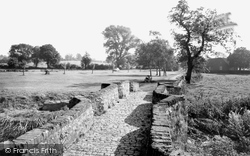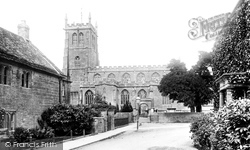Places
Sorry, no places were found that related to your search.
Photos
5 photos found. Showing results 441 to 5.
Maps
83 maps found.
Books
Sorry, no books were found that related to your search.
Memories
1,127 memories found. Showing results 221 to 230.
St Clare's 1961
We were at Pantasaph in the summer of 1961 for 6 months; we were the Sprague's, Pauline aged 12, Barbara aged 8 & Josephine aged 6. We remember the McCabes & Veronica Murtough, in fact Veronica turned up in my life years ...Read more
A memory of Pantasaph by
Memories Of Flamborough
My dad was born in 1909 in Flamborough. This photo is significant to me because, as a young man, my dad helped to install the winding equipment in the old winding shed on the left hand side of this picture. This photo ...Read more
A memory of Flamborough by
Marston Jabbett Caravan Park
We moved here from Coventry in about 1956-1957, it was a 22 foot mobile home. We met Jack and Rene Linford who had an adopted daughter, Carol Linford, same age as me. "Uncle " Jack as I called him used to take us to ...Read more
A memory of Nuneaton by
George And Dragon Westerham Parish Church
My father, Ian Thomas, grew up in the George and Dragon which was owned by his parents. My dad told us many stories, particularly of the WW2 era, when he would climb out of his bedroom window (I believe ...Read more
A memory of Westerham by
Rydal Grove
I lived at 21 Rydal Grove and went to Southwark Street school in the 1960,s. Left in early 70's. My dad's name was Derrick Routhan he worked at Bairnwear then the NAAFI on Bottle Lane sadly he died in 1985. Remember so much about ...Read more
A memory of Old Basford by
Bradley St
I was born in 1953 and went to Bradley St Primary. I recall there were three girls who dressed the same; the Pearl triplets. I remember going on a school trip to Heathrow Airport and losing my souvenir cast metal model plane on the ...Read more
A memory of Uttoxeter by
Niffyite
I'm a born & bred Countesthorpe lass & spent my first 16 years of life enjoying the village very much before moving on to pastures new. I lived just across the road from the post office.
A memory of Countesthorpe by
Old Memories Of Living In Woodlands East
Enjoyed my childhood (memories from 1947 onwards) living on "the fronts" Great North Road, with friends, some of them I am still in touch with - John Hudson, Kathleen Hudson, Kathleen ...Read more
A memory of Woodlands by
My Childhood Holiday
My Aunt was the Matron in charge of Tickford Abbey and my Uncle was the caretaker in about 1960. I came down from Scotland to spend a long holiday with her when I was 4 or 5. I used to climb up the fire escapes over the ...Read more
A memory of Newport Pagnell by
Leigh School
My sister and I used to spend every summer in Leigh, so much so that we even attended the School. I think it helped that our granny was Mrs Faulkner (Dorothy)the Infant school teacher. Grampy was Sandy, our mum Jean was born and ...Read more
A memory of Leigh by
Captions
1,233 captions found. Showing results 529 to 552.
The light Chilmark limestone, quarried only ten miles away, contrasts with the dark Purbeck marble of the slender shafts supporting the arches.
The stone-arched building on the right was the postern tower built in 1497 on St Mary's Abbey walls; it is now an office for First York Buses.
The two-storey north porch has a two- centred arch. The east window dates from 1846- 48.
Marble Arch stood here in the Mall until 1850, when it was removed to its present position at the top of Park Lane.The Mall, an expansive and formal approach to the Palace, is fringed with limes
The yellow brick west tower has a re-used Norman zig-zag arch to the doorway.
The chancel and nave walls are more than 700 years old, and the nave arches were fashioned out of chalk from nearby Odiham.
The high arched ceiling is supported on slim pillars of pale stone, creating a light and welcoming interior. The pulpit is of alabaster and the screen of ironwork.
The opening in 1912 of the County Hall in Cathays Park provided a much-needed centrally contained administrative centre for Glamorgan.
It began life as the Merchants' Exchange, with an open-arched arcade on the ground floor. This was blocked in 1718 when the building was converted for use as a Customs House.
The five-arch later 19th-century red-brick bridge still rather pompously carries a narrow roadway across the pond in the south west angle of the Heath.
Its iron girders were replaced in 1939 with stone arches.
Controversially, he removed the plasterwork - thus exposing the timber-framing - and disposed of the 500-year- old arches between the posts on the ground floor.
It is best known for the beauty of the architecture of its two churches: the ancient building has been sympathetically restored, and the newer place of worship has four impressive stone arches
Dart Bridge is the first on the river to be built from anything other than granite - its four arches are constructed from local limestone.
At Water End, the River Gade runs under the fine three-arched bridge and through water meadows shaded by beech, willow and oak trees.
The arch is that to the 1911 pipe bridge that carries Lincoln's water from Nottinghamshire. The present footbridge is a Victorian one placed here in 1987.
This is how local historian W A Abram described the Town Hall: 'The west front, 120 feet wide, with an elevation of 63 feet, presents the main entrance in the centre, by three massive arched doorways
Here we glimpse the High Street through the arches of the Market Hall, which was built in 1627 at the expense of Sir Baptist Hicks.
Bootscrapers, timber-sashed windows and moulded brick arched heads to the ground floor windows and doors provide a quality so often lacking in modern housing.
The 19th-century squire, Sir Edward Cholmeley Dering, had every window in the village altered to have rounded lights under an exterior arch in the belief that this would bring good luck.
The storks in the spandrels of the doorway arch are often found on Gibson buildings. In the late 19th century the bank of the Gibsons amalgamated with others to form Barclays.
It is thought that Macbeth may have lived at Inverness Castle, or used it as a base for operations against the Orcadians.The suspension bridge superseded a stone bridge of seven arches, which was destroyed
On the south-east side of the village the five-arch stone bridge, perhaps of the 16th century, steps quietly across the very reedy Rotherby Brook.
To the left are the arched and mullioned windows of the 1661 Almshouses; partly hidden is Ashlar House, which is mid 18th- century and set at the corner of Pound Lane, which leads to the moated Manor
Places (0)
Photos (5)
Memories (1127)
Books (0)
Maps (83)

